Finding your active crowd doesn’t have to be difficult. Luckily there are inclusive and accessible group sports and physical activities out there for people of all abilities and skill levels.
Want to try a thrilling sport that checks off these boxes? Take a shot at boccia!
To teach you more about boccia, inspire you to try it and help you get started, we spoke with two Canadian boccia Paralympians: Alison Levine and Danik Allard.
Alison is currently one of the world’s top boccia competitors. Among her countless accomplishments, she won gold medals in individual and pairs play at the 2023 World Boccia Santiago Parapan Ams and competed in the the 2024 Paris Para Games alongside her pairs’ partner, Iulian Ciobanu. Alison is in the BC4 class, which is made up of boccia athletes with severe disabilities other than cerebral palsy that affect the whole body.
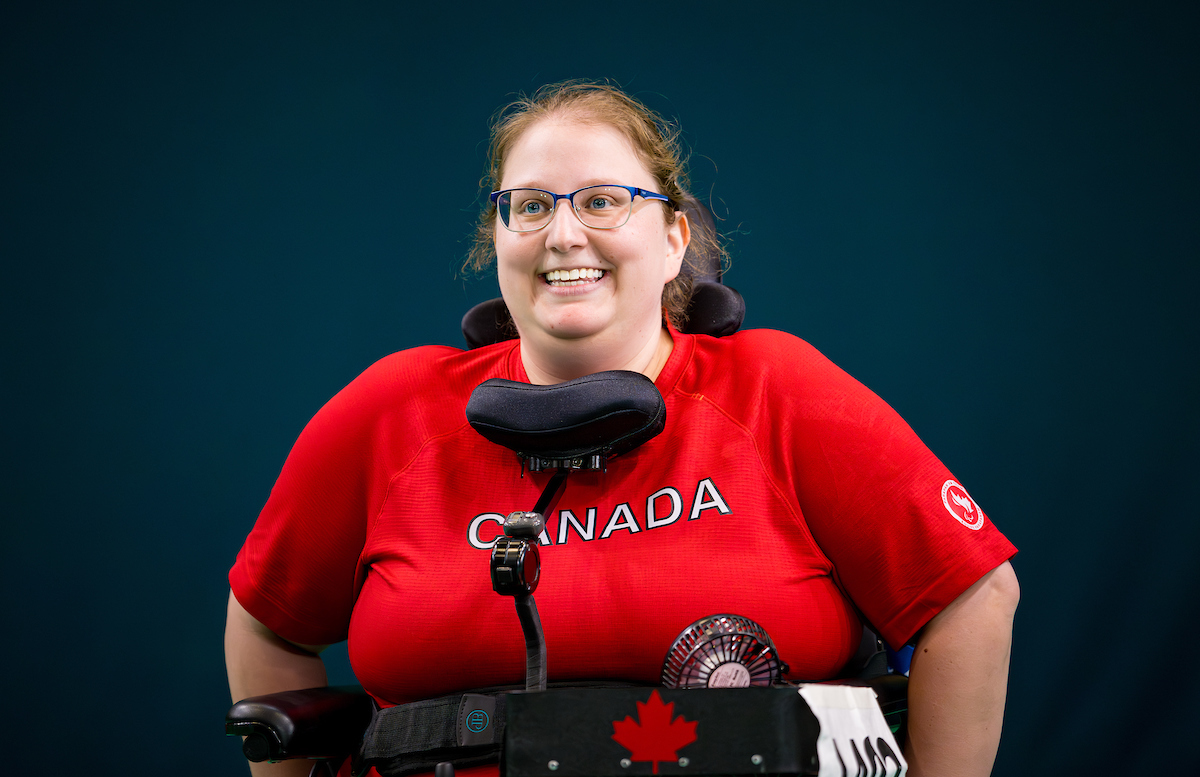
In 2023, Danik competed in the World Boccia Santiago Challenger, where he won gold in the individual category and silver in the team category. He also won silver at the 2023 World Boccia Santiago Parapan Ams in both the individual and team categories. Danik competed in the Paris 2024 Para Games in the BC2 class, which includes boccia athletes with low to moderate trunk and limb movement limitation or high leg movement limitation.
What is boccia?
Similar to curling or bowls, boccia is a sport that requires control and accuracy. Played one-on-one, two-on-two or three-on-three on an indoor court, the objective is to get balls as close as possible to a target ball, also known as “the jack”. A player or team wins when they have scored more points than their opponent(s), which could come down to millimetres.
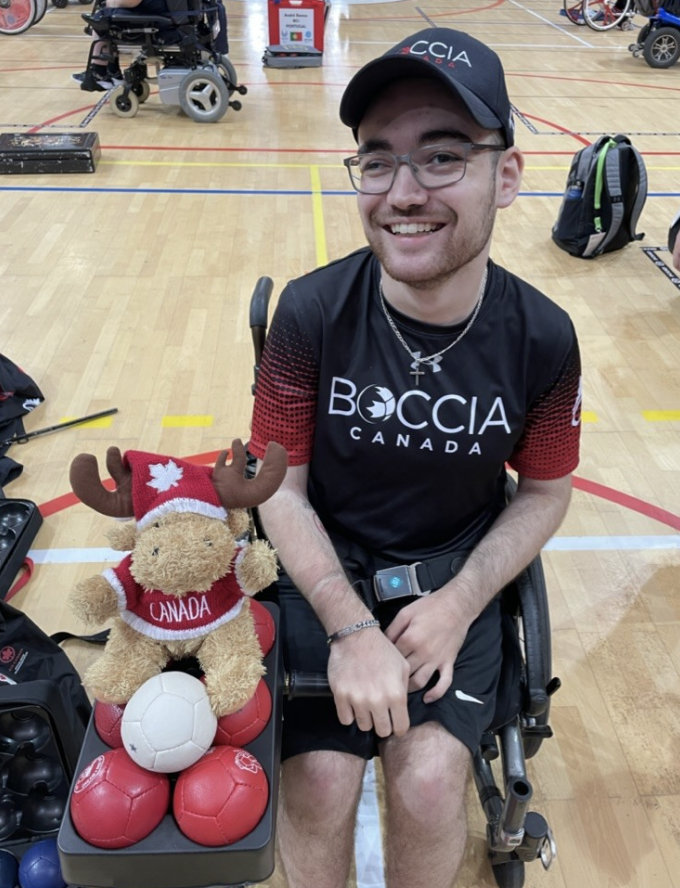
“Boccia requires intense focus, strategy and precision,” Alison told ParticipACTION. “You can have a plan in mind and depending on what your opponent does, you have to re-analyze and decide on and execute a new plan within seconds.”
“What I like most about boccia is the mental aspect, specifically how much strategy and thinking is involved,” Danik told ParticipACTION.
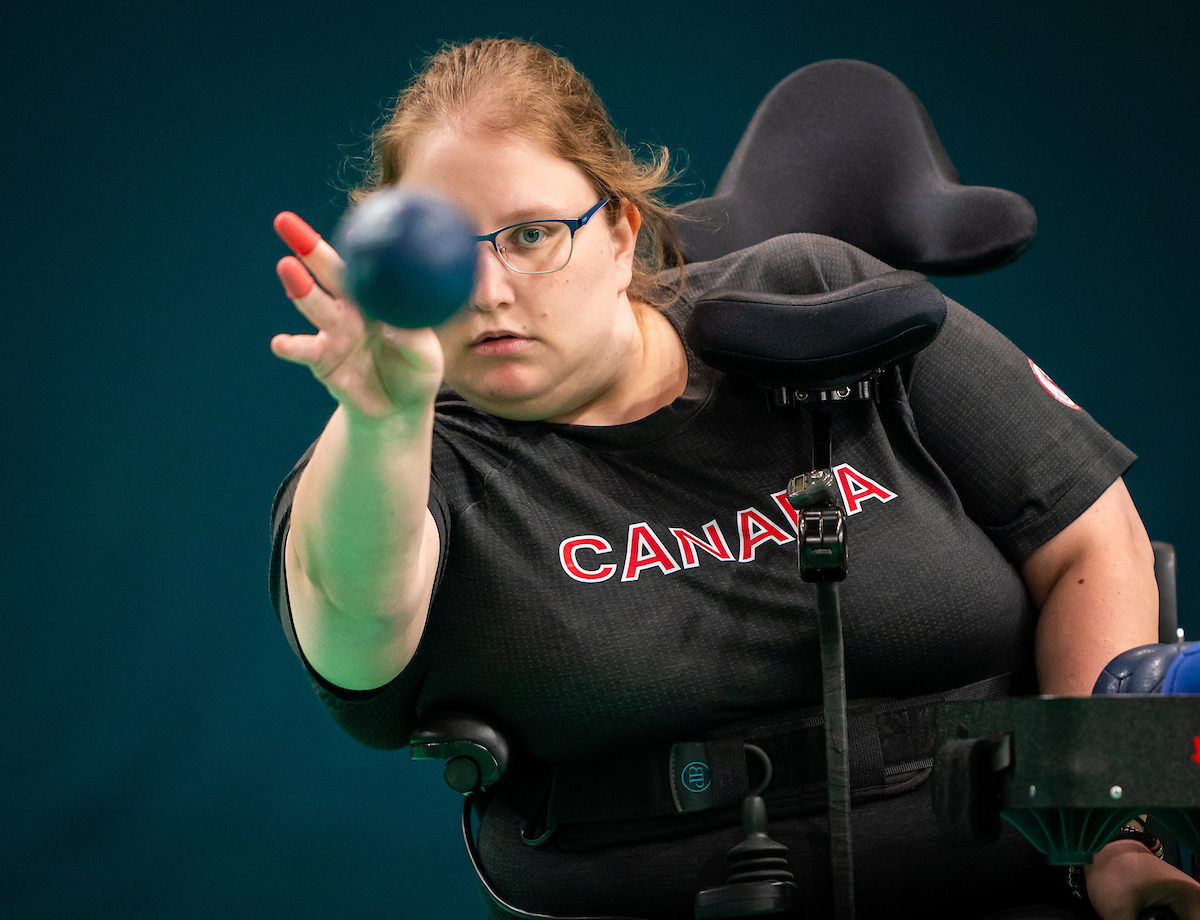
Why is boccia so accessible?
Although boccia was initially created for people with cerebral palsy, people with a wide range of disabilities now play it. That’s because boccia is a highly adaptable and accessible sport: players unable to throw the ball can roll or kick it; athletes who cannot roll or kick the ball can use a ramp; and those who can’t release the ball with their hands can use a performance partner, or a head, mouth or arm pointer.
“I participated in many adaptive sports in the past, including competitive horseback riding, wheelchair basketball, para ice hockey and wheelchair rugby, but now I focus on boccia because it’s the only sport physically suited to my level of disability,” said Alison.
“Before I became a boccia athlete at age 12, I had tried para ice hockey, but my parents noticed that it was a bit too demanding for me, so they looked for a different sport where I could grow as a person and challenge myself physically,” said Danik. “One day my mother discovered boccia and asked if I wanted to try it.”
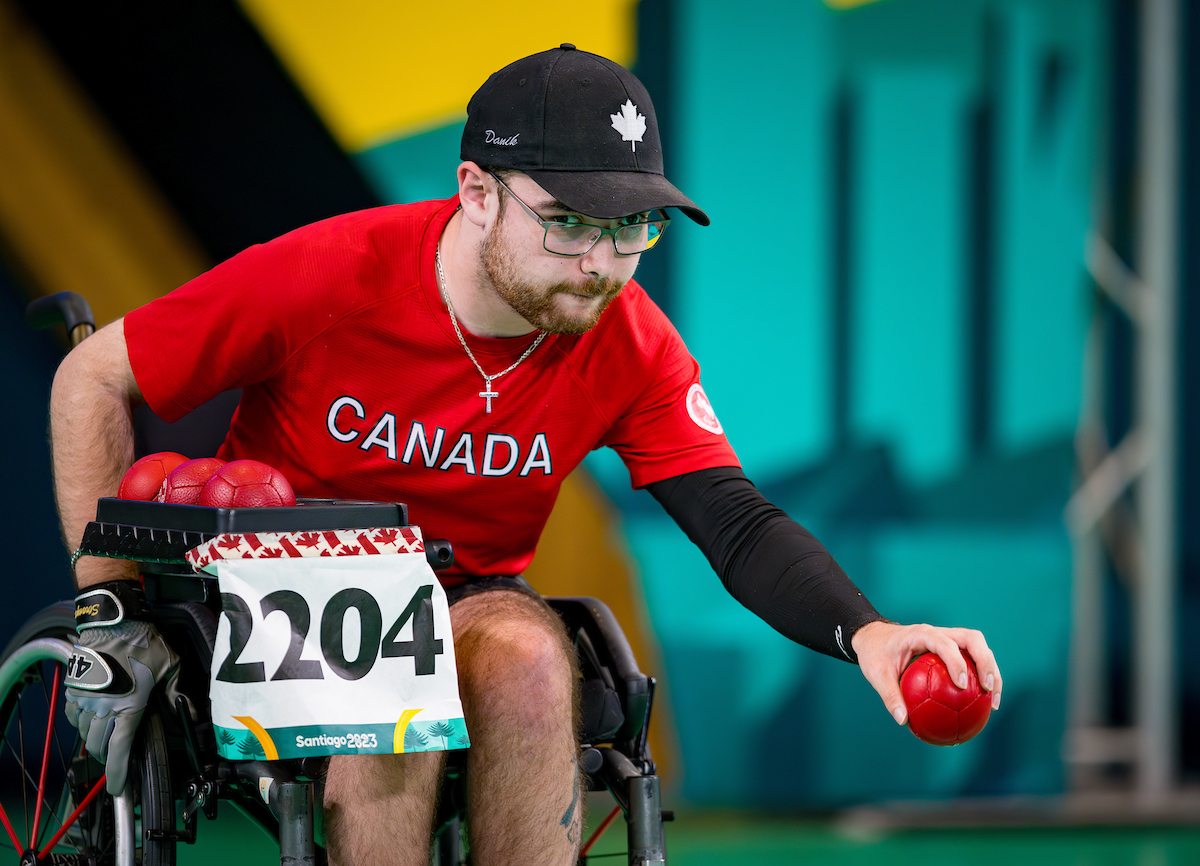
How to play boccia
First, one player or team member projects the jack onto the court from one of the six designated throwing boxes. Then, each player or team projects their six blue or red balls, with the aim of getting them as close as possible to the jack.
The player or team whose ball is farthest from the jack keeps projecting balls until they either get one closer to it than the other team or run out of balls. After all the balls have been played or the time runs out, each player or team gets a point for every ball they have closer to the jack than their opponent’s closest ball.
A game of boccia lasts for four ends when played one-on-one or two-on-two, or six ends when played three-on-three. If there’s a tie after all ends have been played, athletes play a tie-break end.
Boccia is easy for beginners to learn but becomes more intense and complex as players enhance their skills.
“At the elite level, almost everyone has the same skills,” said Alison. “What separates the best players from the rest is their capacity to think quickly, make the right decisions and stay calm when things aren’t going well.”
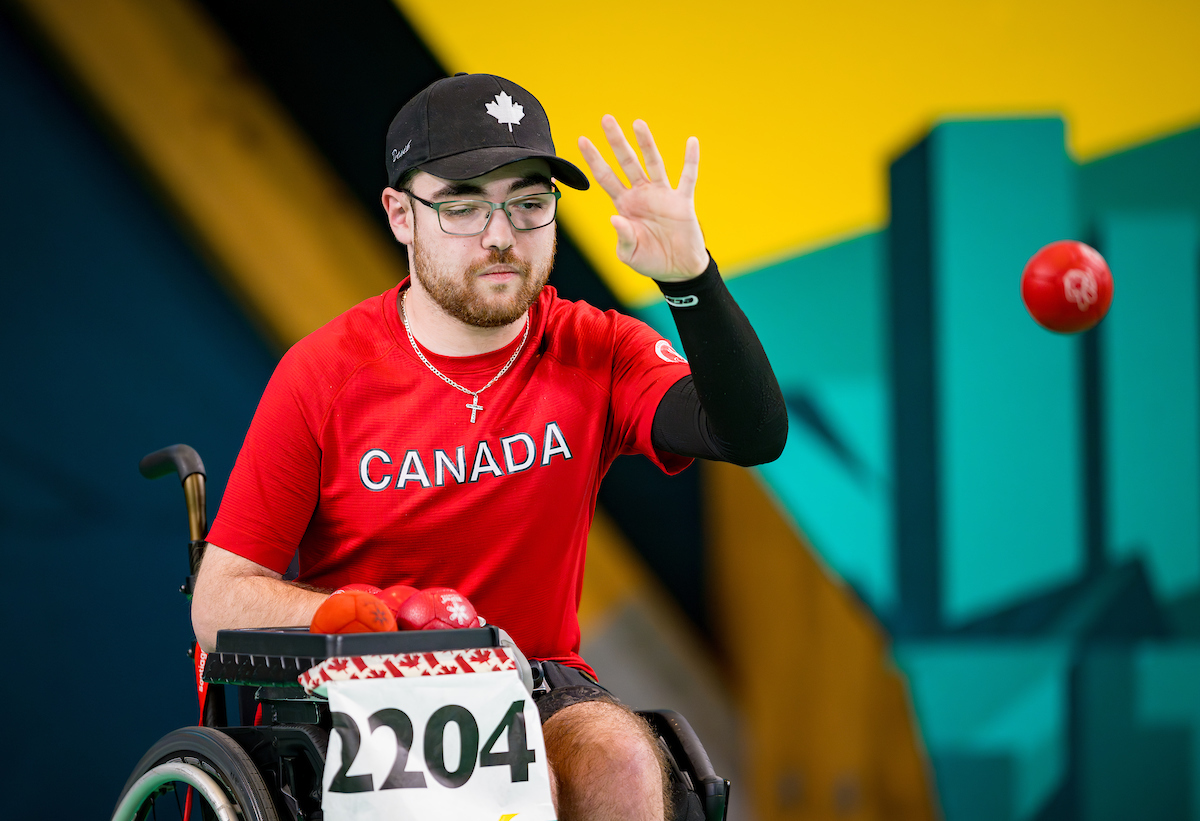
To learn more about how to play boccia, watch this video created by Boccia Canada.
The benefits of boccia
Like other group sports, boccia provides many social and mental health benefits. For one, since playing in a boccia club or league offers opportunities to socially interact with other players and coaches, it can help you form social connections that can turn into meaningful friendships and a strong mental health support system.
“The friends I’ve made through boccia and other adaptive sports understand when I’m having a bad day and what I’m going through,” said Alison. “They’re there for me when I need to cry or laugh as I navigate this world.”
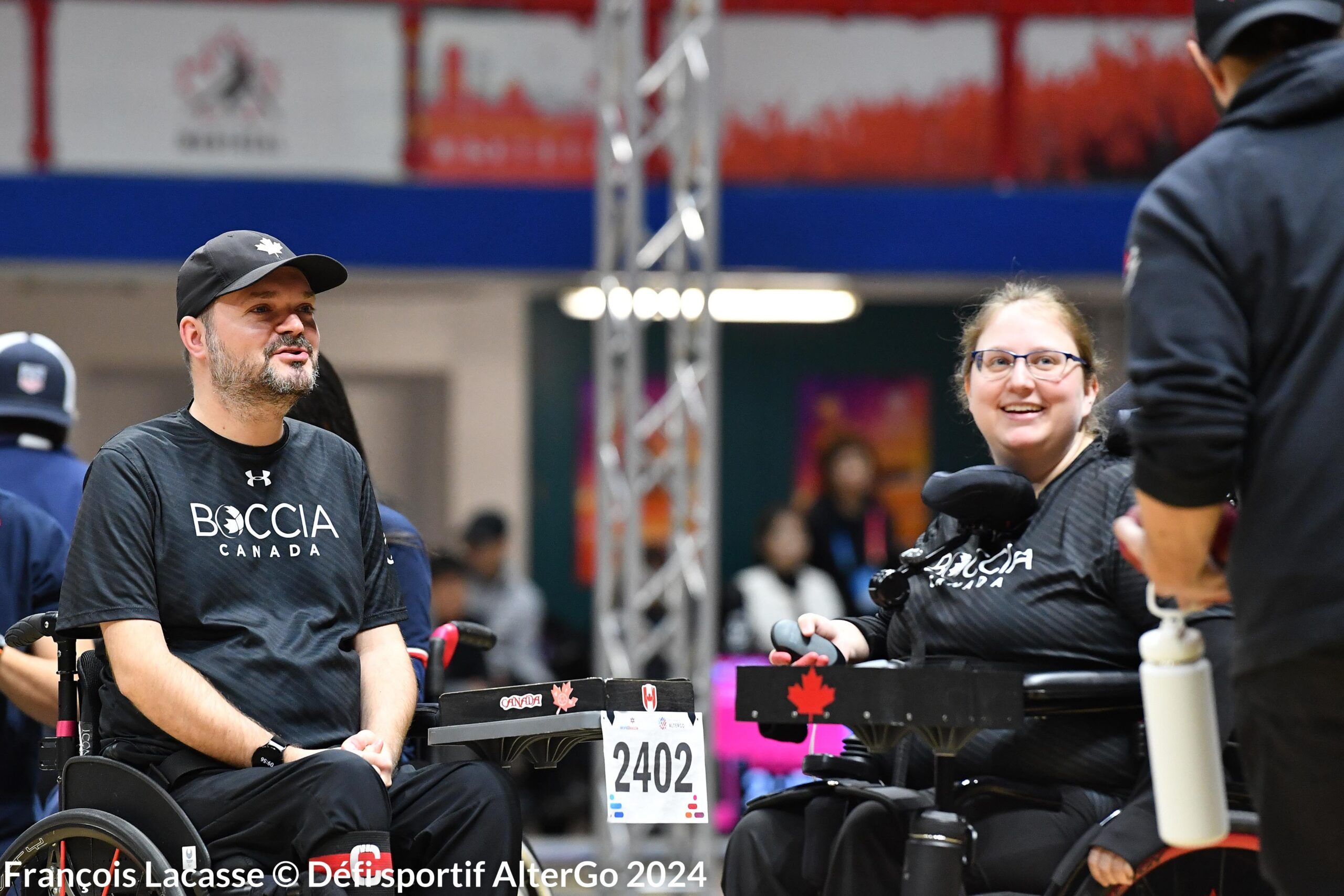
Being part of a boccia club or league can also expose you to positive influences who may motivate you to push yourself and/or participate in after-game celebrations or club socials that may further benefit your mental health.
“Boccia and all the other sports I’ve done have required me to push through barriers to achieve my goals, have allowed me to be proud of who I am no matter how I look and have given me the courage to be the best I can be,” said Alison.
Playing a challenging sport like boccia can even help you become more resilient when faced with stressful life scenarios because it teaches you how to handle challenges, setbacks, losses and high-pressure situations.
“In my opinion, having strong mental skills in everyday life is so important because it allows us to face the struggles that life brings us,” said Danik. “Thanks to my support team, I overcame setbacks and learned that making mistakes is just an opportunity for growth.”

“Since I started playing boccia, I’ve seen a huge change in my ability to cope with frustration and be more patient in my daily life,” said Alison.
How to take a shot at boccia
Now that you know all about boccia, here are some ways to learn more, get involved and find your active crowd:
1. Download the Paris 2024 activation kit
If you’re new to the sport, Boccia Canada has a ton of activities to get you started with their activation kit. Learn classic boccia games and drills meant for beginners to develop your skills.
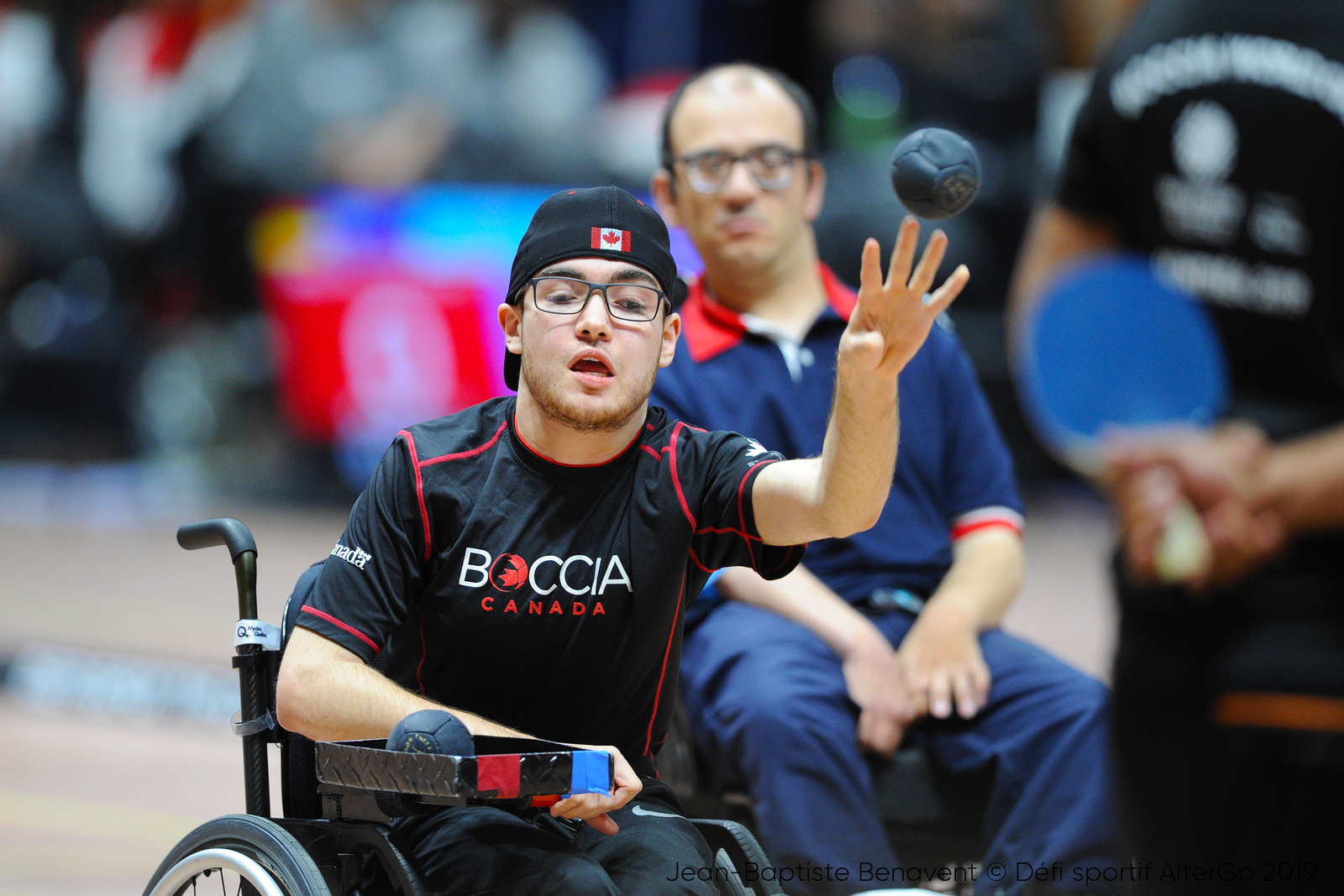
2. Find a boccia club or program near you
Contact your provincial boccia organization and ask them to connect you with a local boccia club or program.
“I strongly recommend everyone try boccia,” said Alison. “It’s an awesome sport because it’s made for everyone. I suggest finding a local club, going in with an open mind and a smile on your face, and just having fun!”
Let’s test your boccia knowledge! Ready to give it a shot?









